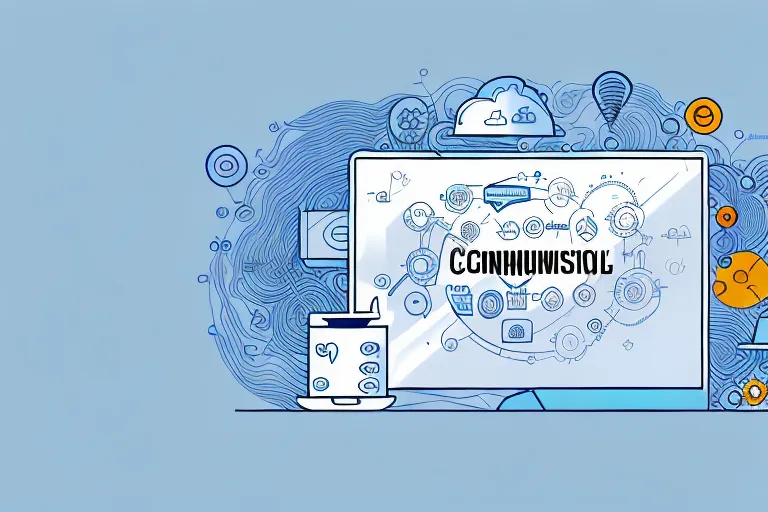The world of communication has been transformed numerous times over the years. From telegrams to phone calls, emails to text messages, and now, we have rich communication services (RCS). RCS is a next-generation messaging standard that has been designed to provide users with more advanced features than traditional SMS messages. Among other things, RCS messaging enables businesses to communicate with customers in more dynamic ways, thanks to the new features and capabilities it offers. This article will explore how RCS Business Messaging APIs have become a game-changer for SaaS platform communication.
Understanding RCS Business Messaging
What is RCS Business Messaging?
Before diving into the conversation about RCS Business Messaging APIs, it's essential to understand what RCS Business Messaging is all about. RCS messaging is an upgrade to SMS, allowing for rich media and interactive messages. RCS Business Messaging, on the other hand, is designed explicitly for business communications.
RCS Business Messaging allows businesses to communicate with their customers in a more engaging and interactive way. It enables businesses to send messages with high-quality images and videos, making it easier for them to showcase their products and services. This feature-rich messaging platform is perfect for businesses looking to enhance their customer engagement and improve their customer experience.
The Evolution of RCS Messaging
The evolution of messaging has been ongoing for decades. From SMS to MMS and now RCS, messaging has come a long way. RCS offers a more feature-rich experience in its messaging offering. RCS started as a collaboration between Google and carriers worldwide, building an ecosystem for messaging delivery. With richer, more engaging messaging available, RCS will likely become the primary messaging platform.
As businesses continue to look for ways to improve their customer engagement, RCS Business Messaging has emerged as a game-changer. It offers businesses the ability to communicate with customers in a more personalized and interactive way, leading to a better customer experience.
Key Features of RCS Business Messaging
Some of the key features that RCS Business Messaging offers include the ability to send messages with high-resolution images and videos, as well as the usage of read receipts and typing indicators that show when someone is typing in real-time. Additionally, businesses can now provide their customers with interactive buttons that allow them to take specific actions directly from the messaging app.
For instance, a retail business could use RCS Business Messaging to send a message to a customer with a high-quality image of a product, along with an interactive button that allows the customer to purchase the product directly from the messaging app. This feature not only enhances the customer experience but also streamlines the purchase process, making it easier for the customer to buy the product.
Another key feature of RCS Business Messaging is the ability to use chatbots. Chatbots can be programmed to answer frequently asked questions or provide customers with personalized recommendations. This feature saves businesses time and resources by automating customer service tasks and providing customers with quick and efficient responses.
In conclusion, RCS Business Messaging is a powerful tool that businesses can use to enhance their customer engagement and improve their customer experience. With its feature-rich messaging platform, RCS Business Messaging is quickly becoming the primary messaging platform for businesses worldwide.
The Role of APIs in RCS Business Messaging
API Integration with SaaS Platforms
RCS Business Messaging has revolutionized the way businesses communicate with their customers. With its rich media capabilities and interactive features, RCS messaging has become a preferred mode of communication for businesses across the globe. One of the ways that businesses can leverage RCS messaging is through API integration with SaaS platforms.
SaaS (Software as a Service) is a software licensing and delivery model where data is hosted on the cloud and made accessible over the internet. Integration of RCS messaging with SaaS platforms provides businesses with the ability to communicate effectively with their customers directly on the app or website they're using, leading to better engagement and interaction levels.
API integration with SaaS platforms allows businesses to send messages to customers in real-time, providing them with relevant and timely information. This can enhance the customer experience, leading to increased customer satisfaction and loyalty.
Benefits of Using APIs for RCS Messaging
The use of APIs for RCS messaging has numerous benefits for businesses. For one, businesses can easily send personalized messages to customers, offering them more relevant and targeted information. This can help businesses build stronger relationships with their customers, leading to increased loyalty and repeat business.
Additionally, businesses can track metrics such as open rates and engagement levels, allowing them to determine the success of their campaigns easily. This can help businesses optimize their messaging strategies and improve their ROI.
Finally, using APIs to integrate RCS messaging with SaaS platforms can reduce the amount of time and effort spent on communication, allowing businesses to focus on other core activities. This can help businesses streamline their operations and improve their overall efficiency.
Popular RCS Messaging APIs
Several APIs exist today that businesses can use to integrate RCS messaging with their SaaS platforms. One such API is the Google Cloud Messaging API, which allows businesses to send out push notifications and messages to their customers. Other popular APIs include the Twilio API and Infobip's API. These APIs provide developers with the tools and resources they need to integrate messaging into their products easily.
Businesses can choose the API that best suits their needs based on factors such as pricing, features, and ease of use. By leveraging the power of APIs, businesses can take their RCS messaging strategies to the next level and stay ahead of the competition.
RCS Business Messaging vs. Traditional SMS
In today's digital age, messaging has become an integral part of our lives. Be it for personal or professional purposes, messaging has revolutionized the way we communicate. With the advent of new technologies, messaging has evolved, and businesses are now using messaging as a tool to reach out to their customers. RCS Business Messaging and Traditional SMS are two such messaging services that businesses use to communicate with their customers.
Enhanced Features and Functionality
One of the primary reasons that RCS Business Messaging has become so popular in recent years is because it offers more advanced features and functionality than traditional SMS messaging. With RCS, businesses can send multimedia messages, including images, videos, and audio files, making it easier for them to convey their message to their customers. Additionally, RCS messaging allows businesses to track engagement levels, monitor success rates, and get real-time feedback from their customers, making it easier for them to understand their customers' needs and preferences.
Improved Security and Privacy
RCS messaging also provides better security and privacy than traditional SMS messaging. RCS messaging has a more significant dependence on encryption, ensuring that messages are more secure than they would be with traditional SMS messaging. Additionally, RCS messaging is permission-based, meaning that businesses must get permission from customers before sending them messages, thus ensuring that customers have more control over their messaging preferences and information. This feature also helps businesses build trust with their customers, as they know that their information is safe and secure.
Cost-Effectiveness and Scalability
From a cost-effectiveness point of view, RCS messaging has an edge over traditional SMS messaging as businesses can send messages directly to customers without incurring additional fees. This makes RCS messaging ideal for businesses that want to communicate with customers in real-time without worrying about the cost. Additionally, RCS messaging is highly scalable, making it easy for businesses to stay in touch with their customers regardless of the size of their customer base. This scalability also means that businesses can send personalized messages to their customers, making them feel valued and appreciated.
In conclusion, RCS Business Messaging and Traditional SMS are both effective messaging services that businesses can use to communicate with their customers. However, RCS messaging offers more advanced features, improved security and privacy, and cost-effectiveness and scalability, making it the preferred choice for businesses that want to enhance their customer communication and engagement.
RCS Business Messaging Use Cases for SaaS Platforms
Customer Support and Engagement
RCS Business Messaging has numerous use cases for SaaS platforms. One such use is for customer support and engagement. By integrating RCS messaging into their support platform, businesses can quickly respond to customers' questions and concerns in real-time, leading to greater satisfaction and trust.
Marketing and Promotions
RCS messaging is also useful for marketing and promotions. Businesses can send targeted messages directly to customers' messaging apps, offering them discounts and promotions, leading to more sales and revenue. Additionally, businesses can use RCS messaging to send personalized messages, further increasing engagement levels.
Transactional Messaging and Notifications
Finally, RCS messaging can also be used for transactional messaging and notifications. For example, businesses can use RCS messaging to send customers notifications about their purchases, upcoming appointments or events, and other useful information.
Conclusion
Overall, RCS Business Messaging APIs are a game-changer for SaaS platform communication. Offering greater functionality and security than traditional SMS messaging, RCS messaging provides businesses with numerous benefits, including better engagement and customer satisfaction levels. By integrating RCS messaging into their SaaS platforms, businesses can leverage the power of real-time communication to achieve their business goals.

